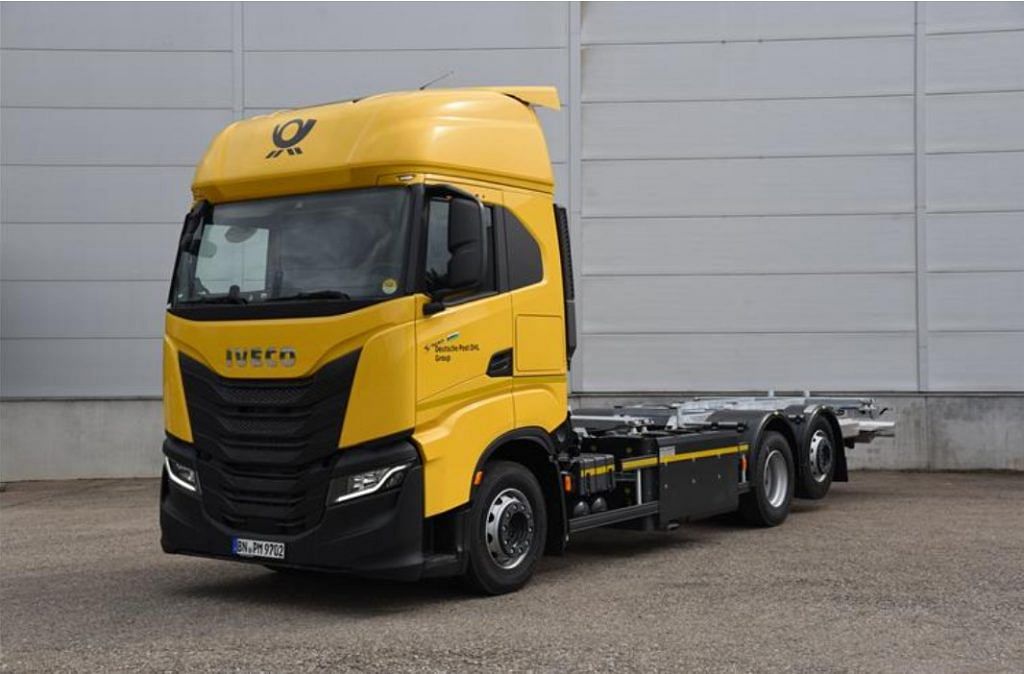
Iveco, the Iveco Group brand that designs, manufactures and markets light, medium and heavy commercial vehicles, has received an order for the supply of 178 S-Way CNG (Compressed Natural Gas) trucks to the Post & Parcel Germany division of DHL.
The order will expand DHL’s sustainable fleet, furthering their commitment to reducing their carbon footprint and contributing to the decarbonisation of road transport. The new trucks will be primarily used for inter-hub transport at DHL parcel centres, customer pick-ups, and urban deliveries to post offices.
The Iveco S-Way CNG trucks are equipped with Cursor engines from FPT Industrial – the Iveco Group brand specialised in low-environmental impact powertrains – that can be powered by bio-CNG. Bio-CNG is a sustainable renewable fuel derived from waste and residual materials; its use can reduce CO2 emissions by up to 95% compared to a diesel engine and, if the gas is sourced from manure, could even achieve a negative carbon footprint of up to -120%.
“Compressed Natural Gas technology is currently the most mature solution on the market for reducing emissions and our Iveco S-Way CNG ensures extremely efficient performance, while maximising the benefits of the most eco-friendly fuels available today,” said Luca Sra, President, Truck Business Unit, Iveco Group. “We are proud to partner with DHL in their efforts to reduce their environmental impact and contribute to a more sustainable future.”

Overview of Compressed Natural Gas (CNG) as an eco-friendly fuel
Compressed Natural Gas (CNG) is making waves in the transportation industry as a sustainable and eco-friendly alternative to traditional fossil fuels. Derived from natural gas, CNG is a cleaner-burning fuel that produces significantly lower emissions compared to diesel or gasoline.
One of the key advantages of CNG is its environmental impact, with reduced greenhouse gas emissions and lower levels of pollutants such as nitrogen oxides and particulate matter. This makes it an attractive option for companies looking to reduce their carbon footprint and comply with stricter emissions regulations.
Also Read: Tata Motors to increase CV prices by up to 2% from April
In addition to its environmental benefits, CNG also offers economic advantages, as it is typically more cost-effective than diesel or gasoline. With fluctuating fuel prices, CNG provides a more stable and affordable fuel option for businesses looking to optimize their operational costs.
Furthermore, the infrastructure for CNG refueling stations is expanding, making it more convenient for companies to adopt this alternative fuel source. As seen in the partnership between Iveco and DHL in Germany, the transition to CNG trucks represents a significant step towards sustainable logistics operations and a greener future for the transportation industry.







